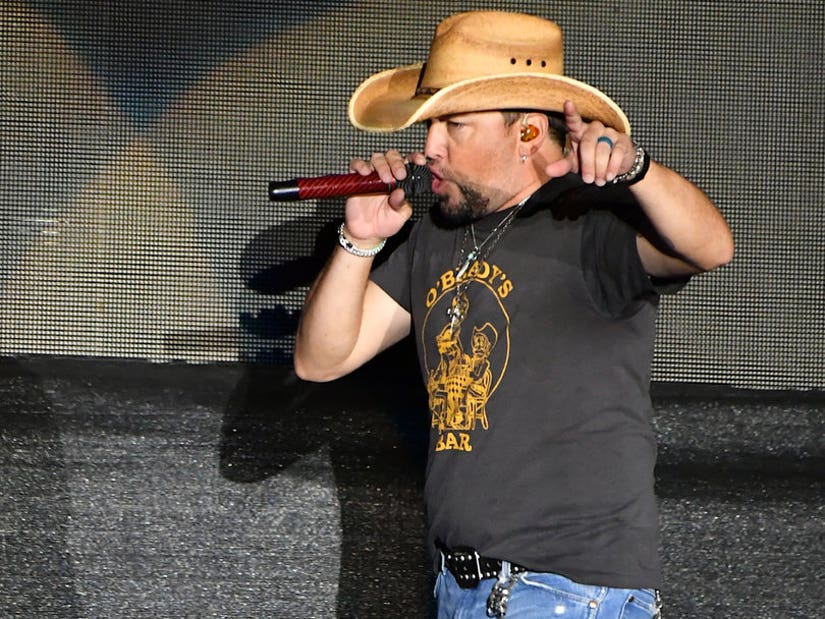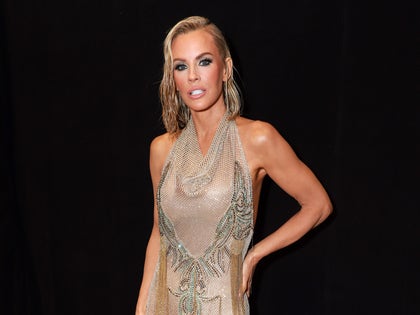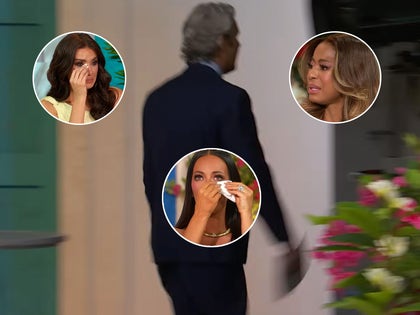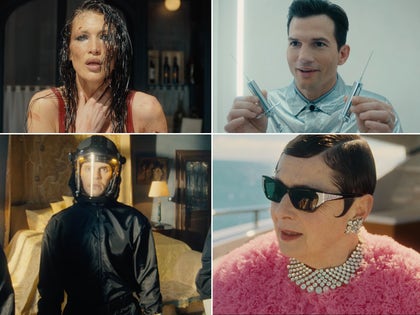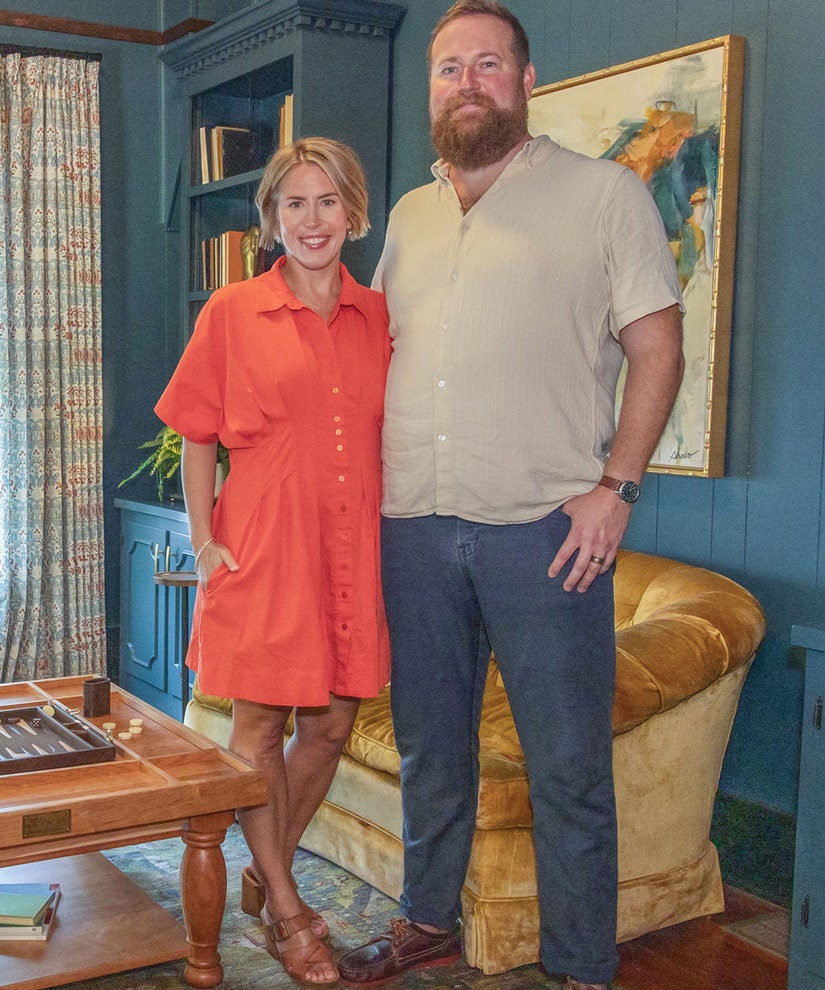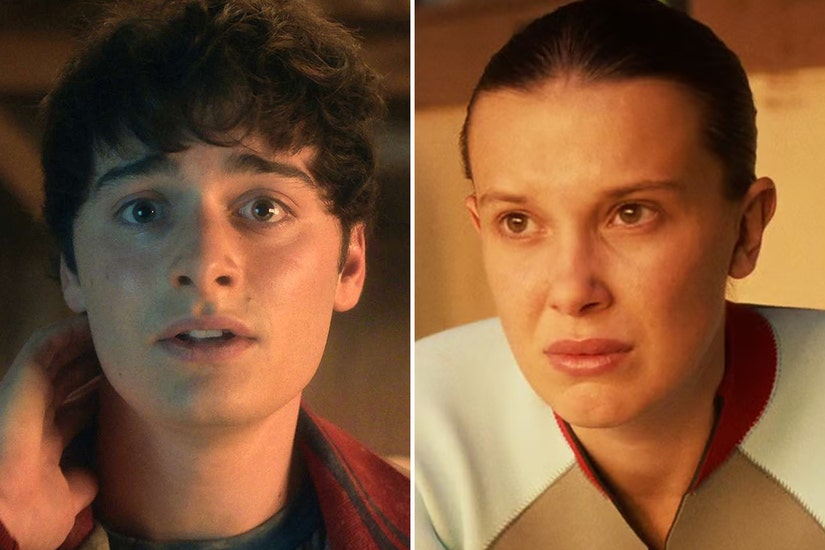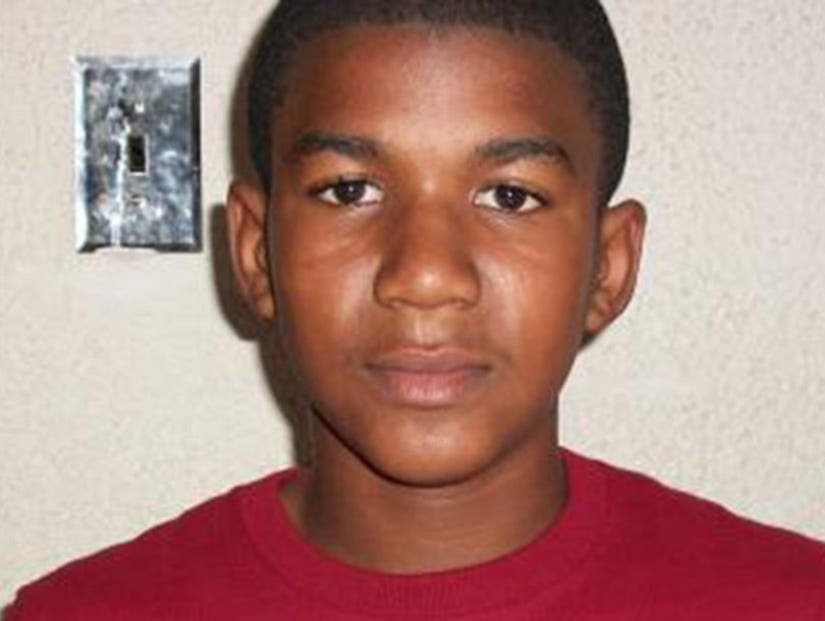 Trayvon Martin Foundation
Trayvon Martin Foundation
The 2012 shooting death of Trayvon Martin at the hands of George Zimmerman rocked the United States to its core, and new docuseries "Rest in Power: The Trayvon Martin Story" aims to show viewers exactly how.
Paramount Network's 6-part series kicked off Monday night with a premiere episode that raises a few big questions about the investigation, gives viewers an inside look into why the Martin family and their legal team decided to make a media spectacle of the shooting, and shows how hard it was for the Trayvon's parents to hold themselves together while they fought for justice instead of simply grieving the loss of their 17-year-old son, who was armed only with a pack of Skittles when Zimmerman confronted him with a handgun.
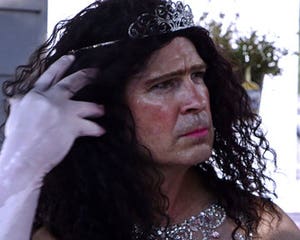 Showtime
Showtime
Sacha Baron Cohen Pulls Off Craziest 'Who Is America?' Prank Yet on Trump Supporters
View StoryLike any good true crime documentary series, the first episode in this limited series produced by Jay-Z ends with a bit of a cliffhanger. But since we all know the case played out with a Florida jury acquitting Zimmerman of all charges. Filmmakers Jenner Furst and Julia Willoughby Nason don't tease us with more developments in the case. Instead they make a big promise: Over the course of six episodes, they're going to connect the current socio-political climate dividing the United States to Trayvon's death, and we can't wait to see how all the dots are connected.
“We opened up Pandora's box,” Trayon's father, Tracy, says by the end of the premiere. “I had no idea what was going to happen.”
While we wait for the series to really dig into the ripple effect Trayvon's death had on all of our lives, let's dig into what went down in the premiere.
Was the Police Investigation Flawed?
Combining interviews with the Sanford Police Department and video footage from the interrogation of Zimmerman, the episode suggests officers took the suspect's side immediately, leading to their decision to not immediately file any charges against the man who fired a bullet into Trayvon's chest. “The police accepted his version like the gospel,” Martin family attorney Benjamin Krump says at one point. “Can you imagine if Travyon was a white kid?”
Police subjected Zimmerman to what one officer described as a “truth verification instrument,” consisting of just nine questions to determine a “voice stress analysis”. While showing footage of the quick test, the filmmakers point race or racism was never brought up, which seems like an oversight considering Zimmerman — a dedicated neighborhood watch captain and aspiring law enforcement official — had called the police several times in the years leading up to Travyon's death to report his suspicions about black people walking around his neighborhood or playing in the street. Some might call that profiling, but the investigators didn't seem to think it was relevant.
“The stories we got is that the neighborhood watch was really the watch of the black people in the neighborhood,” civil rights attorney Natalie Jackson says in the episode.
Even more disturbing, footage from the police station shows one investigator appearing to almost coach Zimmerman on his story instead of interrogating him.
“So in your mind's eye, this person was committing no good over there, you had to follow in good faith to go ahead and see what he was doing. He jumped you, he attacked you, okay. He reached for your gun. You discharged. You got off of him. You only shot once. Police arrived. You surrendered and here you are,” Detective Chris Serino rattles off to an agreeable Zimmerman.
Another officer explains to the filmmakers their point of view: “George Zimmerman claimed self defense. This young man can't speak about what had occurred, and so we needed to get probable cause for the arrest of Mr. Zimmerman, and that's what the issue at hand was.”
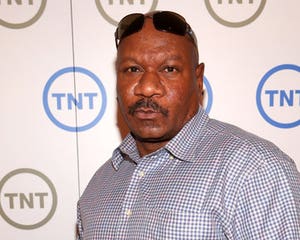 Getty
Getty
Ving Rhames Says Police Held Him at Gunpoint Inside His Own Home
View StoryThe Case for Race
MSNBC political analyst and television personality Joy-Ann Reid appears in the episode to describe Krump as a “the Johnny Cochran of Florida civil rights law.”
“He's very good at forcing a public conversation about a case that's being ignored,” she explains.
Krump made the case about race because he knew if he needed to put pressure on police to pursue charges against Zimmerman, he would need a lightning rod for public interest. And he was right. Outrage erupted across the country after it was framed as a white neighborhood watch captain killing an unarmed black teenager.
"You better make it as a public as possible, otherwise they're just going to sweep it under the rug," Krump tells the filmmakers. "I said, 'Tracy, we're going to take your case and we're going to fight like hell for you, because this kid walking home from the 7-Eleven was profiled, pursued and shot in the heart. Trayvon Martin never, ever should have been killed like this.'"
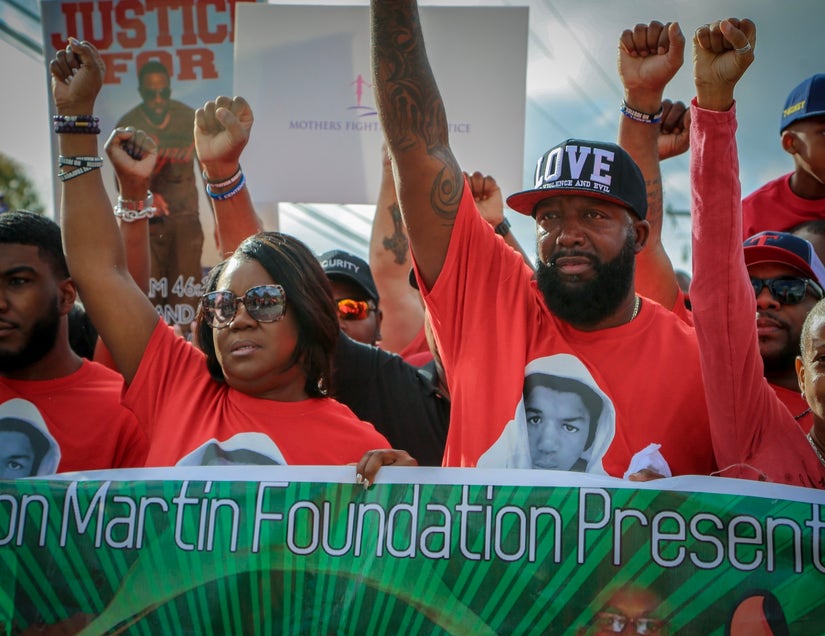 Chachi Senior for Paramount Network
Chachi Senior for Paramount Network
Finding the Will to Fight
Some of the most emotional impactful scenes in the premiere unfold when Trayvon's parents, Tracy Martin and Sybrina Fulton, are on camera. It's hard to understand the pain of losing a child unless you've experienced the tragedy yourself, but their solemn voices and tears tell us all we need to know -- you don't ever want to be in their shoes.
"My life changed forever. A piece of me died," Sabrina says. "I never understood and I can't say I understand now why it happened."
"I was on the verge of tearing the city of Sanford up," Tracy says. "I had to get some redemption for what had happened to Trayvon, but I also knew there was a right way to do it."
The death of a child is difficult enough to process on its own, but now imagine having to grieve while continuing to wake up every day to fight the system to get that child some kind of justice, or in this case, just a shot at justice.
"Either you choose to grieve or you choose to fight, but you gotta choose one or the other, because if you choose to grieve, it's over," Krump says at one point. "Nothing happens to the killer of your child."
Those words motivated a nearly broken Sybrina, who initially refused to come to Sanford when her ex-husband asked her to be there to help raise awareness for the case.
"That's a hard pill to swallow. I was like, 'I'll be there,'" she tells the filmmakers.
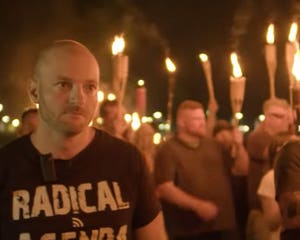 Vice, "Charlottesville: Race and Terror"
Vice, "Charlottesville: Race and Terror"
5 Biggest Shockers From Vice's Harrowing Charlottesville Documentary
View StoryThe Origin of Stand Your Ground
Florida's “Stand Your Ground” law was what saved Zimmerman from a conviction, and the episode detailed how the National Rifle Association was involved in passing the legislation that former Florida Gov. Jeb Bush signed into law in 2005 with a top NRA lobbyist standing next to him.
State Attorney Barry Krischer, who retired in 2009, was opposed to the law while in office. “It's going to have to involve the death of a child before the public is going to realize it is not reasonable,” he says in one interview clip included in the episode.
"Not only do we want more guns sold, now we're going to take it one step further -- you should be able to use it," says Joy-Ann Reid at one point while expressing what she believes to be the NRA's intention.
To hammer the point home, progressive activist Lisa Graves argues, "This law exonerates people like George Zimmerman who said they were in fear."
"Rest in Power: The Trayvon Martin Story" airs Monday nights at 10 p.m. on Paramount Network and BET.

